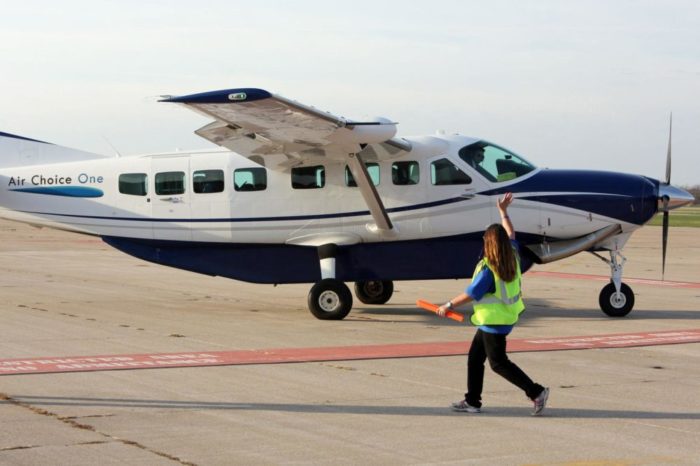EAS—No Savior for Towns Without Trains.
by Matt Melzer
Twenty-one small towns may soon lose all air service under the Essential Air Service (EAS) program due to underperformance. Critics of passenger train subsidies inevitably point to the availability of road and air alternatives (whose subsidies they seldom acknowledge). In the case of aviation, there are myriad tax exemptions and indirect subsidies supporting airports and airspace everywhere. But all Americans pay direct subsidies for EAS to smaller towns whose airports cannot sustain service in the open market, and which may not sustain in the long run anyway.

In the case of EAS service, USDOT puts operating contracts out to bid, with small regional airlines proposing various levels of service on turboprops. They generally charge fixed fares from the small towns to bigger hubs, with taxpayers guaranteed to make up any shortfalls. Successful EAS service is usually executed by operators that have strong interline agreements and connections with larger network carriers, marketing initiatives (also sometimes locally subsidized), and the good fortune to serve places with strong demand but weak transportation links otherwise (such as the Alaskan bush).
In the Lower 48, if the per-passenger subsidy exceeds $200, the law says USDOT must put the towns on notice that service could go out to bid again or end entirely. There are reasonable arguments to be made on either side about the merits of EAS; service to towns that are within the catchment areas of larger airports is always particularly vulnerable. But what about the train as an alternative? Only one of the 21 targeted towns (Altoona, PA) currently has Amtrak service. The rest will be left at the gate.
As public policy, it’s shameful that we continue to plan and operate these systems in isolated silos, with select federal favoritism towards funding dominant modes (especially Interstate Highways) in the form of free money to states. The dangerous direction that Amtrak is taking— insisting that states must pony up for any new service on their own—is completely contrary to the federal Constitutional responsibility to regulate interstate commerce, to which nothing is more foundational than transportation.
We must continue to advocate for a more holistic approach focused on local mobility outcomes. If that sometimes justifies subsidizing planes, so be it. But we must stand up to policies that force Americans into any single mode of travel.




You can get a bus (listed on Amtrak schedule) from Alamosa, CO to Denver and get the eastbound California Zephyr there. If I could figure out where to leave my car I might have to do that some day, though I would have to leave home at 4:30 AM to get the bus which gets me to Denver to get #6 leaving at 7:10 PM that night! Right now that’s not very appealing.